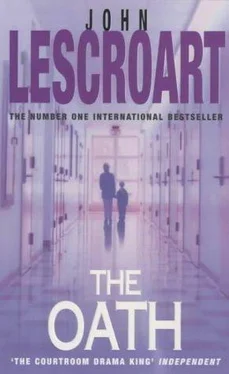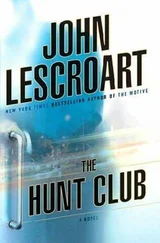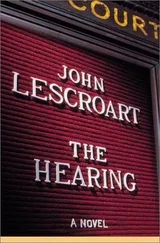Sincerely,
Timothy G. Markham

Parnassus Medical Group
Embarcadero Center
San Francisco, California
Dear Dr. Kensing:
It has come to my attention that you intend to appear on the public affairs television program Bay Area Beat . Let me remind you that the several medical committees on which you sit with the Physicians' Group have confidentiality arrangements with the Health Plan. I will interpret any breach of this confidentiality as grounds for dismissal. As a personal note, you are aware, I am sure, of the critical negotiations we are conducting with the city at this time. I find your public appearances and negative comments about some of the Group's policies to be singularly ungrateful and morally unconscionable, particularly in light of the Group's leniency and compassion toward you in other areas in the past.
Very truly yours,
Malachi Ross
Chief Medical Director and CFO

Parnassus Medical Group
Embarcadero Center San Francisco, California
Dear Dr. Kensing:
If you don't want to prescribe Sinustop to your allergy patients, of course that is your prerogative and your medical decision. But it is a useful drug, and I have approved its inclusion on the formulary. Your continued efforts to undermine the Group's profitability by questioning my decisions are inappropriate. I have been patient with you long enough on these matters. The next event will have disciplinary repercussions.
Malachi Ross
"Where did you get these?" Hardy asked Jeff Elliot. He flipped through the pages he held, maybe twenty more of them. They were at the counter at Carr's, a nondescript and-due to the new Starbucks around the corner-possibly soon out-of-business coffee shop on Mission by the Chronicle building. "Especially this first one. Jesus."
A twinkle shone in Elliot's eyes. "As you know, Diz, I can never reveal a source."
But Hardy didn't have to think very hard to dredge it up. "Driscoll. Markham's secretary."
Elliot's eyebrows went up a fraction of an inch. Hardy knew he would rob Jeff blind at poker. "Why do you say that?"
"He's come up a few times. He's fired, right, and probably saw that coming in advance. So he e-mailed his files home in case he wanted some leverage for later. Or just simply to screw somebody for the pure joy of it."
Elliot scratched at his beard. "Without either denying or admitting your guess as to my source, he's a reporter's dream. Vindictive, gossipy, craves attention. He probably gave me five hundred pages."
"All on Kensing?"
"No, no." Elliot laughed at Hardy's panicked response. "No, as far as I can tell, on the whole world at Parnassus."
"Does Marlene Ash know about them?"
"She'd be trying to get them if she did, although of course I couldn't give her any of it, either. I did tell him, though-my source, I mean-that if he wanted to keep any kind of exclusive control over its use, he might want to download it onto disks and put it someplace special, where Marlene or Glitsky wouldn't think to look for it."
"And yet you've got it here."
"I know." Elliot grinned. "Sometimes I like my job."
Hardy picked up his spoon and stirred his coffee. "Anybody could have just typed them, you know. They might not be authentic."
"You're right. Maybe they're not. But somebody would have to type really fast to get all this since last week."
Hardy accepted this. In fact, he had no doubt that the letters were genuine. They'd never be accepted as proof of anything in court-not without hard copies and signatures-but this wasn't the law. This was journalism and Jeff could decide to accept them if his source was credible enough. "So what are you going to do with them?"
This was the crux and they both knew it. Jeff had called Hardy as a courtesy because Hardy was Kensing's lawyer. In view of the intense interest in nearly everything to do with Parnassus since Markham's death, Elliot told him that Kensing's substance abuse problems constituted real news. "On the other hand," he said, "the heat's kind of gone up under the Loring thing. If there's a serial killer at Portola, that's going to trump Kensing every time. I don't really want to run this, Diz-I like the good doctor and it would ruin his day-but if it turns out to be important, I won't have a choice."
"What could make it that important, Jeff?"
"How about if he was high when he was working on Markham in the ICU?"
Hardy had to admit, that would do it. "Has anybody said boo about that?"
"No. But I'll tell you something. If my source actually read most of these pages and thinks about it enough, I predict it's going to come up."
Hardy shook his head, marveling at the capacity for simple meanness in some people. Eric Kensing was only one doctor out of two or three hundred at Parnassus, but he'd unfortunately crossed Driscoll. Perhaps more importantly, he committed the cardinal sin of dissing the boss, with whom Driscoll identified heavily.
But a fresh thought surfaced. Driscoll might have a far better reason to impugn the characters of Kensing or anybody else than wanting to punish them for real or imagined past slights. He might simply want to keep people from looking at him.
"What are you thinking?" Elliot had been watching him.
Hardy covered. "Nothing really, except whether you're going to tell me anything about the other four hundred and ninety-five pages."
"I haven't gotten to them. I can only read so fast. The Kensing letters popped up pretty quick and I thought I owed you."
"As well you did, so now if you do me another favor, I'll owe you, right?"
Elliot considered, nodded. "Maybe. What?"
"If you hear some more rumors from your unnamed source about Kensing's sobriety a week ago Tuesday, don't run the story until you get it confirmed someplace else."
"I don't think the letters are rumors, Diz."
"I didn't say they were. But I've got something that isn't a rumor, either. Maybe we could trade."
***
When Hardy finally got back to his office at about 3:30, he was both gratified and depressed by the delivery of more discovery on the Markham case from the Hall of Justice. It was nice that Glitsky had moved into a more cooperative mode, but he could do without another six hours of tedious reading material. But he opened the box, pulled out its contents, and placed them in the center of the blotter on his desk. Glancing at his phone, he saw that he had two messages.
"Diz. This is Eric Kensing. Checking in. I'm at home if you need me." Hearing Kensing's voice reminded Hardy of how frustrated he was with his client. Maybe he'd come to terms with his drug and alcohol problems long ago, but how could he possibly convince himself his lawyer didn't need to know about them?
The next voice was Glitsky's. Of course, it being Abe, there was no preamble of any kind. "If you're really there, pick up." A silent three-count pause. "All right, call me." Hardy thinking, What a personality.
He picked up the phone, but didn't call Abe. He called his client. When he finished, Kensing didn't say anything for several seconds. "Eric?"
"I'm here. What was I supposed to do?"
"You were supposed to tell me. How's that?"
"Why?" he asked. "All that's far behind me. That was early career, early family pressure, and a giant mistake. I haven't touched-" He stopped himself abruptly, said simply, "That's not who I am anymore."
Hardy heard the words and believed that they might be technically true. But their truth wasn't his issue. "You're saying you're not an alcoholic? What's the first thing you say at your AA meetings?" Hardy knew the answer: "My name's Eric, and I'm an alcoholic," present tense, a permanent condition of being for those in the program. "Look, this is water under the bridge now, Eric. But Jeff Elliot's got this information and it's the currency he deals in."
Читать дальше














